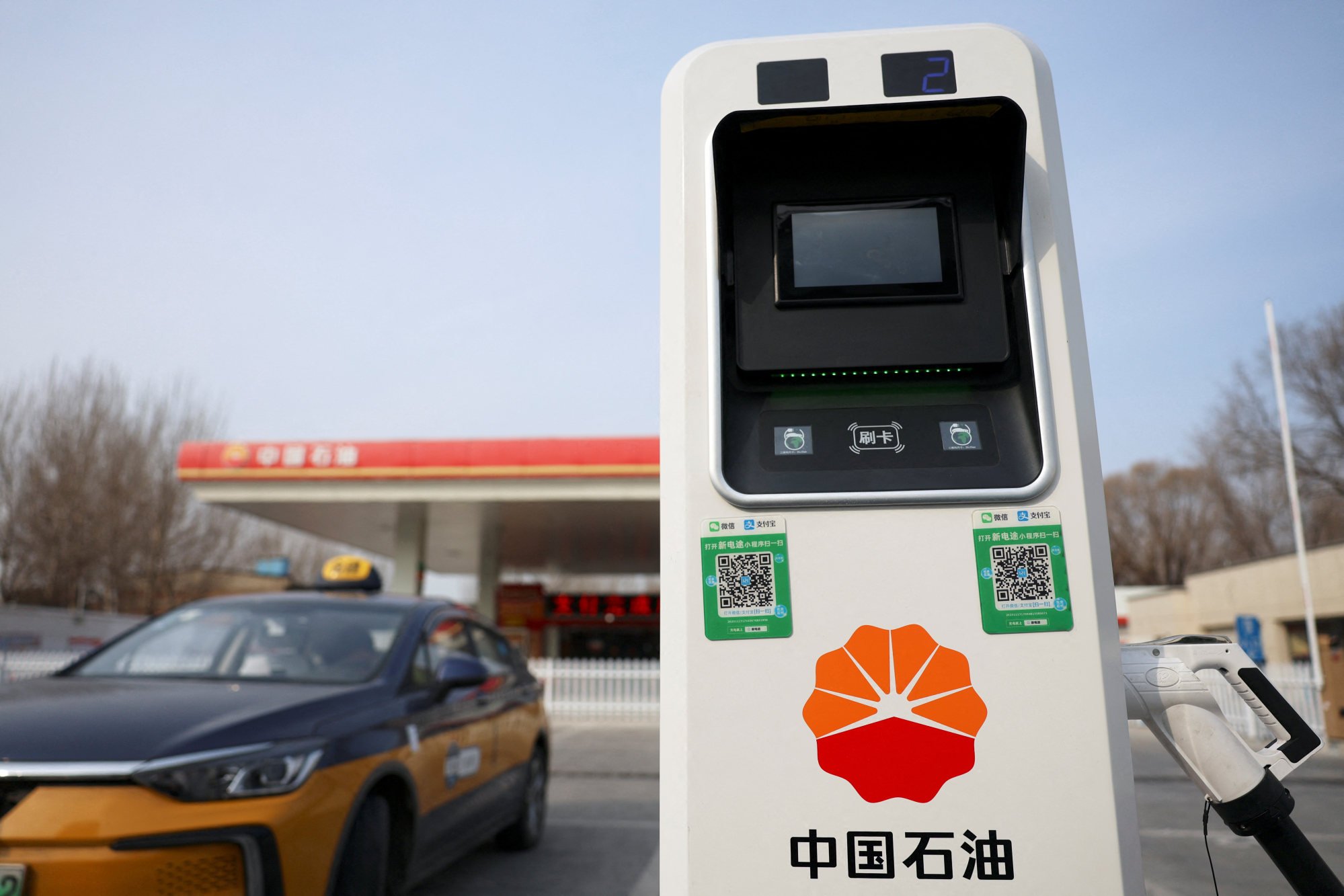PetroChina said its purchase of an electricity producer can help it move faster towards clean energy and become an integrated energy company, adding electricity, thermal energy and hydrogen to its core offering of oil and gas.
The state-owned company said on Monday that it would pay 5.979 billion yuan (US$839 million) to its parent China National Petroleum Corporation (CNPC) to buy 100 per cent of CNPC Electric Energy, which is engaged in power generation, supply and sales, heat supply, and the design and construction of power projects.
“This acquisition is aimed at pressing ahead with PetroChina’s endeavours in energy transition and green development, and to enhance the competitiveness of our new energy business,” PetroChina’s president and executive director Huang Yongzhang said in Hong Kong on Wednesday. “Petrochina’s wind power and solar power business segments are developing rapidly.”
Do you have questions about the biggest topics and trends from around the world? Get the answers with SCMP Knowledge, our new platform of curated content with explainers, FAQs, analyses and infographics brought to you by our award-winning team.
PetroChina plans to establish a platform for buying and selling power by coordinating with its existing businesses in the production and consumption of renewable energy, Huang said.

China’s largest oil and gas producer sold less of the output from its refineries, with the sales volume of gasoline, kerosene and diesel dropping by 2 per cent to 79.05 million tonnes in the first six months of the year. The company’s interim net profit rose 3.9 per cent to 88.61 billion yuan, on the back of a 5-per cent increase in revenue to 1.55 trillion yuan.
Although the demand for oil products will continue to increase as China’s economy recovers from its post-pandemic slump, PetroChina has been seeking to restructure its chemical refining business to meet China’s net-zero emissions goal in 2060.
Oil consumption in China’s transport sector will peak next year “at the latest,” as the rapid adoption of electric vehicles (EVs) saps petroleum usage, putting the annual nationwide demand for oil on the path to reach its peak of between 780 and 800 million tonnes before 2030, CNPC’s research institute said in April.
Faced with the slowing prospect for oil consumption and the global clean energy push, PetroChina has also been investing in solar and wind energy projects in Xinjiang and Qinghai. The company’s energy output from wind and solar power plants more than doubled to 2,170 Gigawatt-hours (Gwh) in the first half of 2024, compared with a year earlier. External power supply surged 3.5 times to 950 Gwh in the first half.
The acquisition of CNPC’s Electric Energy will further help leverage the synergy between its renewable energy and power segments, said Huang on Wednesday.
The company targets to raise the share of renewable energy in its overall production from about 7 per cent this year, to 30 per cent by 2035, and 50 per cent by 2050, according to PetroChina.
More from South China Morning Post:
- PetroChina joins the world’s 2050 net zero pledge to slash oil and gas industry emissions
- PetroChina: rapid EV uptake means oil consumption for transport to peak by next year ‘at the latest’ in China
For the latest news from the South China Morning Post download our mobile app. Copyright 2024.





